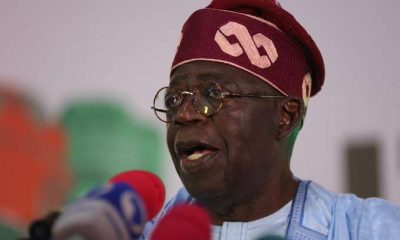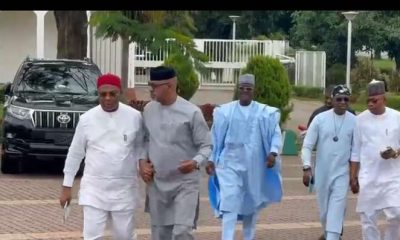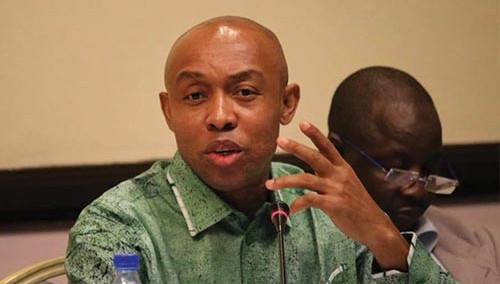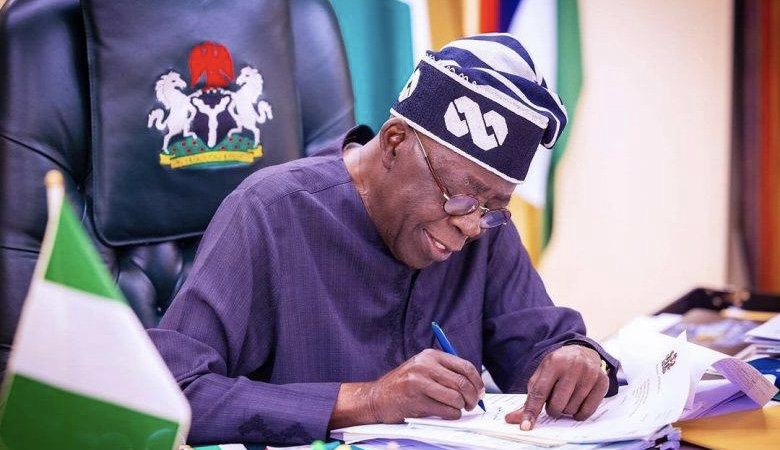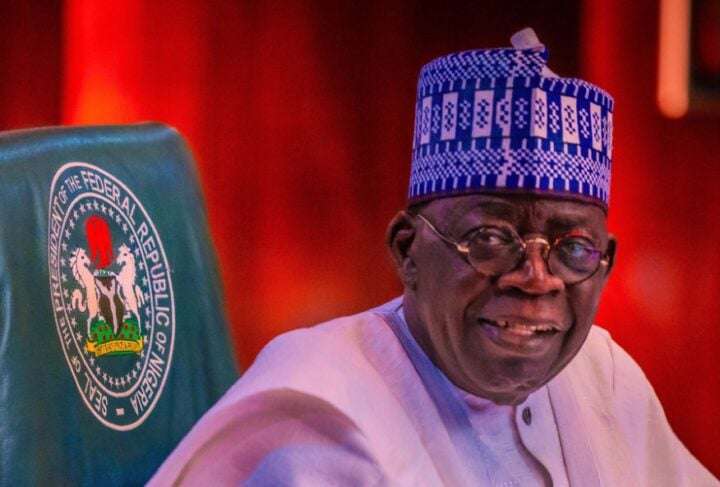Politics
Federalism: President Tinubu battles govs over LG autonomy, others
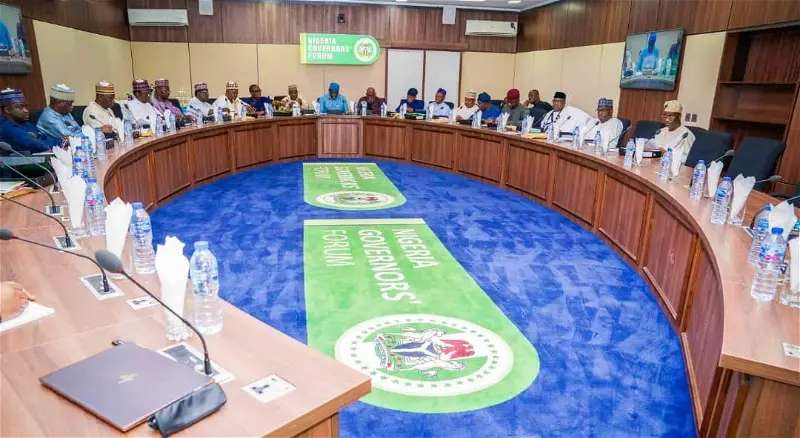
– As true federalism debate catches on
Much of last week’s political discourse was dominated by the ensuing battle between the federal and state governments, following the decision, fortnight ago, of the former, through Attorney General of the Federation (AGF) and minister of Justice, Lateef Fagbemi, to institute a legal action against the governors of the 36 states of the federation, at the Supreme Court over their “misconduct in the administration of Local Government Areas.”
But towards the weekend, a new draft document seeking a wholesale return of the country to a regional structure, with parliamentary system of government, and two six-year terms for prime ministers, surfaced on social media. And although Dr. Akin Fapohunda, the drafter, said he’s only planning to present it to his representative in the lower legislative chamber, who will then present same on the floor, sources close to Aso Rock suggested to Business Hallmark at the weekend that the move is President Bola Tinubu led federal government trying to test the waters.
“What I can assure you is that the Tinubu administration is committed to true federalism,” the source who craved anonymity said. “It should be clear to everyone that the current system is not sustainable. So, yes, there’s need to return to the regional structure because that’s the best way to go now.”
Drafted by Dr. Fapohunda, a PhD. in Agricultural Science, who is into Information and Communication Technology, the document seeks to replace the 1999 constitution with a new governance model.
Fundamentally, the bill proposes, among others, a return to parliamentary system of government with prime ministers allowed two constitutional terms of six years each; to grant ethnic nationalities and peoples in Nigeria an “unconditional right to self-determination within their delineated territories”; federal and regional governments as the only two tiers of government, and a new revenue sharing formula based on 55% Derivation, 30% to the Distributable Pool Account and 15% to the Federal Government.
Under the proposed bill, items on the exclusive legislative list would comprise of defence, external Affairs, immigration, aviation, foreign borrowing, currency, banking regulations, pensions, public debt, public service of the federation and taxes and duties on revenue sources reserved to the federal government.
On the other hand, items on the concurrent List would include Internal security; Prison Services; Inter-Regional Coordination; Bankruptcy and Insolvency; Income taxes and Excise Duty; Fingerprints, identification, and Criminal Records; Power and Energy; Power to make Grants of Money, etc., for any legitimate purposes, sports, among others.
The proposed bill, which remains subject of of hot debate on social media, is not currently before the national assembly, and will not be passed on October 1, contrary to the suggestion of the drafter and speculations on social media.
Spokesperson of the House of Representatives, Akin Rotimi, had on Friday, disowned the bill, noting that contrary to speculations on social media, “the Committees on Rules and Business and Constitution Review have confirmed that there is no such bill before them.”
But the debate is catching on. On Saturday, an event to commemorate the 30th Anniversary of Yusuf Ali & Co, a law firm founded by Yusuf Ali, a Kwara based lawyer, with the theme, ‘The Presidential or Parliamentary System of Government: Where is the Convergence?, held in Ilorin, and had in attendance several leading members of the All Progressives Congress (APC), including the Chief Justice of Nigeria, Justice Olukayode Ariwoola, with many speaking in favour of a return to the post independent Parliamentary system.
However, the vice president, Kashim Shettima and Babatunde Fashola, former Lagos State governor, speaking as a principal guest and guest speaker, respectively, opposed the call, maintaining that only quality governance would shape the society not the system of government.
Regardless, the movement is gradually gathering momentum, but not without suspicion of hidden agenda. On Sunday, a group speaking for indigenous people of Lagos vowed that the state would not be part of Western Region.
Some have suggested that the move could possibly be an attempt by President Tinubu to achieve a third term in office, and therefore, should be watched carefully.
“It is transparently a Third Term kite flown early,” said Prof. Chidi Odinkalu, a human rights lawyer and former Chairman of Nigeria’s National Human Rights Commission. “First, existing presidential term will not count. Second, it’ll be six years and a maximum of two terms.”
According to Odinkalu, “the only way to tinker with presidential term limits in Nigeria for it to make sense is to explicitly make it futuristic by prohibiting the incumbent from benefiting from any change in tenure or term limits. Unless you can show that to me here, this is clearly third term agenda.”
However, the Aso Rock source dismissed the third term concerns, arguing that Tinubu is only interested in securing the country’s future. When contacted by Business Hallmark at the weekend, Dr. Fapohunda, who insisted that it is a personal initiative, said part of his reasons is to instigate debate about the topic.
“Part of the reason is to stimulate the thinking of Nigerians about the way forward. What you have is just a draft. It is not the final document,” he said.
“It has to get to the National Assembly first. I believe we have to evoke the “doctrine of necessity,” because following normal process, you can only amend the 1999 constitution. But an amendment will not get us anywhere at all. We have to do a wholesale change to a new one.
“The document you have is just a draft of what the new constitution should look like, it’s like an annex to the Decree 24 of 1999. What we have now is a decree.”
Asked whether he’s confident that the initiative would succeed, given how attempts at restructuring had collapsed in the past, he said, “It may be difficult, but not impossible. Once there is the political will, it is possible. After all, nobody would’ve thought that it would just be possible to change the national anthem the way it was done. The doctrine of necessity was also what was used to make (Goodluck) Jonathan president, when Umaru Musa Yar’Adua was sick. Once the political class agree that this is what it should be, that’s all.”
He maintained that the country could not continue with the 36 states structure, as according to him, it’s not sustainable.
“Can we continue with 36 states governors, 36 states assemblies? The answer is no. Many states are currently finding it difficult to pay salaries. They don’t do much.”
Continuing, he said, “I just drafted the document last week. It is not there at national assembly yet. I am just making efforts to make sure it gets there. It is already with some members as I have sent it to some members. They are the ones that will have to put it in the form that it can be presented for hearing. I am speaking to the lawmakers that represent my constituency. They can adopt it and make it a private member bill. They can also take the document to the executive and make it an executive bill. If there is a will to change the system the process does not matter.”
Urgency for Change
Dr. Fapohunda emphasized that there’s an urgent need for the process to change the constitution to kickstart, given that if it doesn’t start this year, the country may not have a new constitution until 2030.
“If we don’t do it this year, we have lost it for the next five years again. Because you are going to need, at least, three years of transition period; to o transit from the current system to a new system,” he said.
“The next election in 2027 should be based on the new constitution. But if we are going to run it based on the current one in 2027, that means we will not change it until 2030. So, it is very urgent to agree in principle that we need to change the constitution now. We can hold a referendum to set three years timeline to wind up federal bodies for the states to share assets and do all other things.”
FG, States Battle
Meanwhile, the administration is presently focusing its energy on trying to give autonomy to local governments, the third tier of government in the country, which has since been subsumed by states, a constitutional anomaly often considered low hanging fruit in the quest for restructuring in the face of its mounting developmental challenges, but it’s a move the state governors won’t readily accept.
In the suit seeking full autonomy for all local governments areas in the country, the Federal Government prayed the court to issue an order prohibiting state governors from embarking on unilateral, arbitrary and unlawful dissolution of democratically elected local government leaders.
The suit is also asking for an order permitting the funds standing in the credits of local governments to be directly channelled to them from the federation account in line with the provisions of the constitution as against the “unlawful joint accounts created by governors.”
The Federal Government also prayed the Supreme Court for an order stopping governors from further constituting caretaker committees to run the affairs of local governments as against the constitutionally recognized and guaranteed democratic system.
It equally applied for an order of injunction restraining the governors, their agents and privies from receiving, spending or tampering with funds released from the federation account for the benefits of local governments when no democratically elected local government system is put in place in the states.
In the 27 grounds it listed in support of the suit, the Federal Government argued that Nigeria, as a federation, was a creation of the 1999 Constitution as amended, with the president as head of the federal executive arm, swearing on oath to uphold and give effects to provisions of the constitution.
The federal government argues, “That by the provisions of the constitution, there must be a democratically elected local government system and that the constitution has not made provisions for any other systems of governance at the local government level other than democratically elected local government system.
“That in the face of the clear provisions of the constitution, the governors have failed and refused to put in place a democratically elected local government system even where no state of emergency has been declared to warrant the suspension of democratic institutions in the state.
“That the failure of the governors to put democratically elected local government system in place, is a deliberate subversion of the 1999 constitution, which they and the president have sworn to uphold.
“That all efforts to make the governors comply with the dictates of the 1999 constitution in terms of putting in place, a democratically elected local government system, has not yielded any result and that to continue to disburse funds from the federation account to governors for non-existing democratically elected local government is to undermine the sanctity of the 1999 constitution.
“That in the face of the violations of the 1999 constitution, the federal government is not obligated under section 162 of the constitution to pay any state, funds standing to the credit of local governments, where no democratically elected local government is in place.”
At Thursday’s hearing, the apex court gave the 36 state governors seven days, to file their defense in the suit, and two days for the AGF to file his reply upon receipt of the governors’ defence.
A seven-man panel of the apex court led by Justice Garba Lawal, issued the order while ruling in the application for abridgment of time argued by Fagbemi.
“That within two days of service, the plaintiff will reply after being served the reply of the defendant Counter affidavit,” the court stated
Lawal held that the decision of the court was predicated on the national urgency of the suit and the non-objection from the Attorneys-General of the states of the federation.
All state Attorneys-General are to be present in court on the adjourned date. The eight states, whose Attorney General were absent in court despite not being served with hearing notice were, Borno, Kano, Kogi, Niger, Ogun, Osun, Oyo, and Sokoto.
The Attorney General of Ebonyi state and the chairman of the body of state Attorneys-General, Dr. Ben Odo, speaking on behalf of the other AGs, said they had a meeting and he has their consent of no objection to the suit.
“I have the consent of all the Attorneys General not to oppose the motion,” he said.
The AGF, earlier told the court that the matter requires urgency. “We have filed our written address, from the nature of the case, it requires urgency and I am happy to report that there is no counter affidavit. I want to state that the importance of this matter underscores the agreement of the various Attorney-Generals of the state,” he had said.
Battle Line Drawn
Section 7 (1) of the 1999 constitution says that “the system of local government by democratically elected local government councils is under this Constitution guaranteed; and accordingly, the Government of every State shall, subject to section 8 of this Constitution, ensure their existence under a Law, which provides for the establishment, structure, composition, finance and functions of such councils.”
While the constitution clearly provides for only elected local government councils, its ambiguity in matters of finances has given governors the opportunity to turn local governments into mere appendages of states, with many states merely appointing loyalists to man local governments instead of holding proper elections.
“The problem is that the constitution is ambiguous. It gives legislative powers over local government to the national assembly, and at the same time it gives legislative powers over local governments to state assemblies,” noted Nick Agule, a public affairs analyst.
“What had happened in the past is that there has been attempt to correct that constitutional provision so as to guarantee the autonomy of local governments, but those attempts have been unsuccessful because they require the the state houses of assembly to back it, and the state houses of assembly have refused to back it. You can see the hands of the governors in that. So, this case that has been filed by the Federal Government at the Supreme Court is another way that the Federal Government is trying to arrive at the same result.
“The constitution says that local government is to be governed by democratically elected councils, that is guaranteed. There’s no part of the constitution that grants state governors the power to dissolve local governments. So, that aspect alone is an illegality that is being perpetrated by the governors. I believe that when the Supreme Court begins to hear this case, those are the evidences that the Federal Government is going to put on the table.”
Indeed, even when elections are held, it’s not much different from the governors merely appointing caretaker chairmen, because the state electoral commissions merely announce candidates anointed by the governors.
“The fact is that we don’t really have democratic elections at the local government level. Even when they decide to be conducting elections, the state electoral commissions are basically appendages of governors. They do the bidding of the state governor. So, we don’t really have credible elections at that level, even those that are supposedly elected, their names are just written in government houses and given to compromised state electoral commissions to announce,” said human rights lawyer, Inibehe Effiong.
Effiong said he is in full support of what the Fagbemi is doing, as according to him, there’s a need to correct the abnormality.
“I support the decision of the AGF to invoke the original jurisdiction of the Supreme Court to enforce the provisions of section 7 of the constitution that provides for a system of democratically elected local government council. The governors have made nonsense of this provision by their culture of lawlessness. They have not only bastardized the electoral process at the local government, they have also hijacked local government finances,” he said.
“So, rather than being a tier of government, governors have basically converted local governments to special purpose vehicles for siphoning money.
“It is the Supreme Court that will determine whether the attorney general will succeed or not but I believe that he has an arguable case.”
The AGF Fagbemi, had also last week, proposed that state independent electoral commissions (SIECs) should be scrapped. Speaking on Monday at a one-day discourse, Fagbemi posited that the powers of SIECs should be transferred to the Independent National Electoral Commission (INEC).
Fagbemi said governors have exploited the flaws in certain sections of the 1999 constitution, effectively rendering local governments powerless and irrelevant.
According to him, these inadequacies have allowed the governors to abuse the rights of local governments by using SIECs to impose leaders on them through sham elections.
“To achieve this, many experts have proposed that there is need for the scrapping of the state independent electoral commission,” he said.
“Their functions and powers should be transferred to the independent national electoral commission because the state independent electoral commission remains an appendage to every incumbent governor.
“This is perceived as the root cause of the problem of local government administration in Nigeria.”





